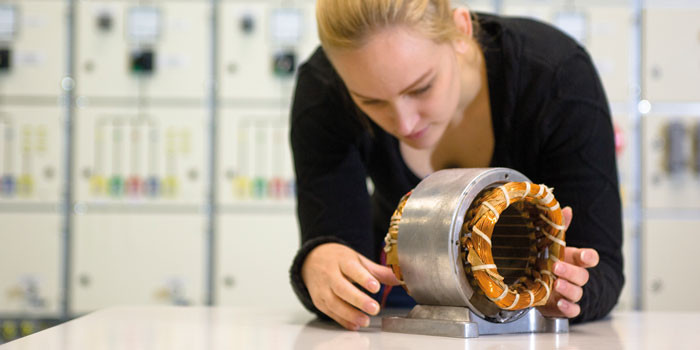Electric drives
Electric drives play an important role, e.g., in a large number of industrial applications, electric and hybrid vehicles, elevators, and robotics. Electric drives are systems where the electric motors or generators are controlled by power-electronic converters (such as a frequency converter). Often the goal is to control the mechanical motion energy-efficiently as well as with accurate and fast dynamic response.
In future smart grids, a variety of power-electronic converters will increasingly be used in both consumption and distributed generation. As an example, grid-connected converters are needed in wind and solar power generation. Converters are also needed in connection with batteries and super-capacitors for regulating their direct voltage. Both hardware and control methods of these kinds of converters resemble those applied in electric drives.
Electric drives group studies and teaches control methods for electric drives and power-electronic converters, as well as the systems and their components analysis, design, and optimization. The group's core competencies are developing real-time control and estimating algorithms. The developed algorithms can be used, e.g., to attenuate mechanical or electrical vibrations, to reduce the amount of sensors, automate the tuning of the system, detect faults and improve energy efficiency. The group also has experience in modeling and parameter identification. In research, know-how in power electronics, industrial electronics, electrical engineering, power systems, and control engineering is needed.
Ongoing research projects deal with the following topics:
- Sensorless control of electric drives
- Grid-connected converters
- Loss-minimizing control of electric drives
- Motion control of resonant mechanical systems
The group is led by Professor Marko Hinkkanen.



